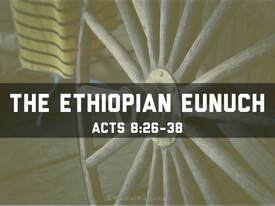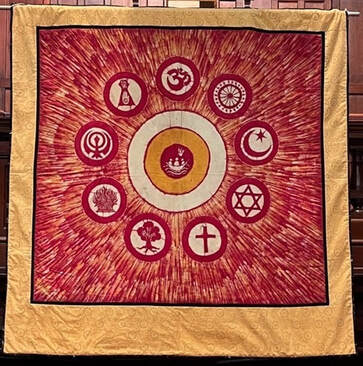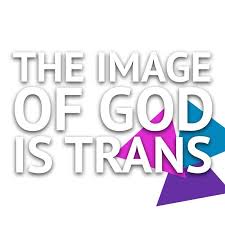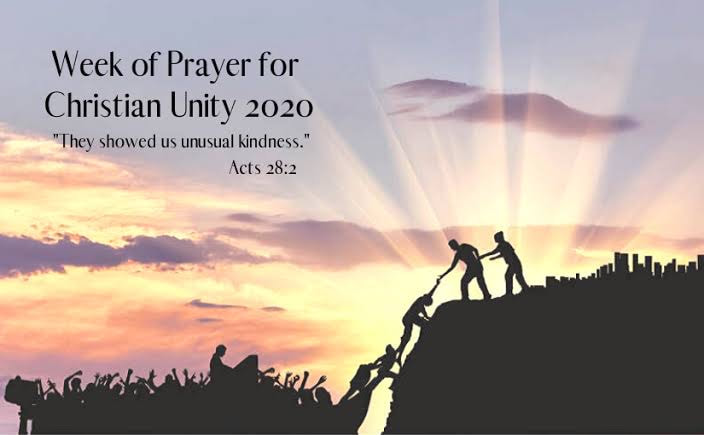
 The writings of Paul tend to get a bad rap in progressive Christian circles. He gets the blame for the subjugation of women, the rejection of queer people and the affirmation of slavery. He is seen as a conservatising force, taking the early church away from the radical message of Jesus and turning that message into something more palatable to conservative Roman culture and thus enabling its spread. Some of that critique is certainly appropriate to the second century writings, such as the pastoral epistles of Timothy and Titus ascribed to Paul by much later writers. However, parts of Paul’s writings reveal a radical thinker, capable of reframing the reforming Judaism of his upbringing into an entirely new faith – a faith moreover informed by his own experiences of persecution and imprisonment. Today’s passage invites Paul’s readers to a number of fresh perspectives on God, creation, and the purpose of life, that continue to challenge our own thinking today. Let’s look at some of it a little more closely...
0 Comments
 ‘Do you understand what you are reading?’ Philip’s question in Acts of the Apostles chapter 8 is such a great one, and it echoes down the centuries. Do we understand what we are reading when we read scripture? Whether we are conservative or varying degrees of liberal, it is easy to think we do. But do we really? This question is one reason that we have a sermon, or homily, or, as this community likes to call it, a reflection, in worship. For, as the eunuch responds, how can we understand unless we have a guide? The alternative is just using scripture as a looking glass, reflecting only our own faces, hopes, fears, and presuppositions. Note well, a guide to scripture is not a simple giver of answers, and certainly not determinative for all times and places. For we continue to reflect on scripture, again and again, precisely because God’s living Word, capital ‘W’, is revealed in scripture but is not fixed within its small ‘w’ words. Rather, as the great biblical interpreters have always said, God’s living Word emerges out of scripture in the encounter of human beings with the text, as guided by one another, our contexts and our deep Tradition, through the power of the Holy Spirit, the ultimate guide and inspirator. This is crucial to recall, lest we are tempted to believe that scripture is too easily understood: whether over-exalted into an idol or a supposed instruction manual, as conservatives are sometimes drawn to do; or reduced to a mere item of intellectual curiosity or piece of cultural heritage, as progressives are inclined to do. Either way, that loses the real subversive power of faith which scripture can hold for us, particularly in stories such as of the Ethiopian eunuch: which, in my view, is one of the most subversive of all in scripture, not least in its queering dimensions…  image by Josh Eckstein on Unsplash image by Josh Eckstein on Unsplash Some of you may have noticed a change to our worship space today. The baby has gone – transformed it seems into a scallop shell. I am passing it around among you as I speak and I invite you to hold it for a few moments if you wish... ...Now, what strange alchemy is this, you may ask? What does this signify? We’ll come back to that. For now, just be aware that we are being subtly, and not so subtly, redirected, from the outer to the inner; from the seen to the unseen; from creation to re-creation; from the incarnation to the resurrection. This is a theological progression that demands that we go back to the beginning – to the creation of light in the story of Genesis as we heard, and to the beginning of the gospel as the author of Mark proclaims it just a couple of verses earlier than today’s text, ‘the beginning of the good news of Jesus Christ, the Son of God’...  There was once a monk who, whenever he passed a mirror, would look into it, wink, and say: ‘so, you old rogue, who are you today, and what are you up to?’ It is a lovely example of what, at its best, today’s queer theology asks. It is at the heart of what Mark Jordan was saying in our contemporary reading today (‘In Search of Queer Theology Lost’). In a striking manner, it also helps lead us into this week’s great Gospel story of the Transfiguration and its meaning(s) for us. For the monk, queer theology, and our Gospel, each challenge us to deeper, more refreshing, ways of living and understanding life and faith. Each disturbs settled identities. Each offers us fresh insight into God: into divine Love and Be-ing, which can never be confined to any one identity, time or place. As one of my favourite memes has it, ‘God is always transitioning’ – or at least, our understanding of God. As, and when, we grasp that, we also share in transfiguring Love…  "What's in a name?”, said Juliet: “That which we call a rose. By any other name would smell as sweet.” Shakespeare’s famous lines speak of the power of names and designations. He presents Juliet, on her balcony, musing on the rose as a metaphor, in the context of her love for Romeo and the intense, age-old, conflict between two tribes - the Capulets (Juliet’s mob) and the Montagues (Romeo’s mob). Juliet proclaims that names have no ultimate meaning, other than those which people are willing to give them. As she puts it, in reference to Romeo: “Tis but thy name that is my enemy…. What’s Montague? It is nor hand, nor foot/ Nor arm, nor face. O be some other name/ Belonging to a man.” We do not, says Juliet here, have to be controlled by our names, by our tribes. We can choose how to live with them, and, in love, transcend them. Of course, Shakespeare’s story of the young lovers ends in tragedy. It is challenging to live with, and beyond, our names, our tribal identities. It can bring misunderstanding, opposition, and much worse. Yet is this not the path of true love, in the fullest dimensions of those words? Certainly, as we come today to bless our beautiful new interfaith banner, we do so in awareness of that same call to honour the different names of God, and not to let them control and divide us. For in the depth of all the world’s great wisdom traditions, true love, divine love, is not simply about reaffirming what is valuable in our tribal identities. True love is also about walking paths of inner and outer transformation together…  photo: Rachel Cook on Unsplash photo: Rachel Cook on Unsplash Do you identify with the conversion of Saul, later re-named Paul, which we hear read today? It does not fit us all. Yet it is certainly a striking story, which has powerfully influenced some, especially evangelical, Christian traditions. Indeed, it has sometimes become a classic model for becoming a Christian. It speaks, for example, of a remarkable repentance – or turning around, which is really what repentance means. It speaks of whole-hearted, whole-self transformation of life in Christ; and, above all, it speaks of the transforming power of God’s love and grace. All of this, we may say, are indeed important aspects of Christian Faith, and, as such, the story challenges us, like Saul/Paul, to consider the direction in which we are traveling and what is drawing us and companioning us on the way. All of these things also go to the heart of the sacrament of baptism which we were planning to share this morning. Unfortunately this has had to be postponed due to the baptismal candidate having contracted COVID-19. Nonetheless, it is still worth us reflecting today on the sacraments of baptism and of communion, which we do share together this morning. For, like Saul’s conversion, what do we make of them? How does God’s grace work through them, and in particular moments of our lives?… One of my favourite contemporary spiritual songs is that which we heard before the beginning of our worship today – ‘I Am Mountain’ by Gungor (see YouTube link above). The lyrics are evocative of both rich ancient understandings and the best insights of modern life and science. They speak of profound presence, of the immanence and transcendence of the divine. They direct us to the heart of the life-giving spirituality of this Season of Creation. For, in Gungor's words, and ancient Christian orthodoxy proclaims, ‘there’s glory’ (‘beauty’ and ‘mystery’) in the dirt.’ As Christian, and other mystics, have affirmed, there’s ‘a universe within the sand, eternity within’ a human being. Often, we may indeed feel ourselves to be ‘wandering in skin and soul/ Searching, longing for a home’. Yet in truth, in memorable phrases, we are invited to see ourselves as:
Momentary carbon stories From the ashes Filled with holy ghost In the face of the climate emergency, we are also called, by ‘the light’, to ‘fight, fight for our lives’ - as we have also explored, particularly in last week’s reflections and discussions. However, above all, we are encouraged to acknowledge more deeply the wonder of the divine existence we share. For we are intimately related to our extraordinary world. All metaphors, as Gungor says, then begin to break down in the face of this astounding mystery and reality, as: Life is here now Breathe it all in Let it all go You are earth and wind…  Three things immediately struck me in recently moving back to work again in the centre of Sydney. Firstly, so many of the high buildings had either grown even higher or had multiplied in number. Secondly, particularly in the adjacent areas north and west of Pitt Street Uniting Church, different Asian shops and cultures continue to grow in number. An official Koreatown now sits close to Chinatown, and other presences, including Malaysian, and particularly Thai, are not far behind. Thirdly, in the suburb where I live, each park has an acknowledgement of country, including the prominent words Budyeri gamarruwa – ‘welcome’ in Gadigal language. Each of these things are redolent to me of both the challenges, and the promise, of Pentecost today. For if we are to receive the Spirit of God more fully - replacing hearts of stone with hearts of flesh, and becoming one body in this land - these are part of the journey we make…  What is an 'indecent' body to you? Marcella Althaus-Reid, one of the most stimulating of modern theologians, posed this question vibrantly. Her best known book, entitled Indecent Theology, challenged us to reconsider how we see and talk about bodies - especially female, sexually and gender diverse, poor and colonised bodies - all which have been treated as ‘indecent’. This, for me, is certainly at the heart of a healthy understanding of gender identity, and, crucially, affirms the gifts which gender diverse people have for the whole body of Christ and the whole body of society and our planet. It also takes us to the heart of 1 Corinthians chapter 12, where St Paul specifically commends us to honour the ‘weaker’, ‘less honourable’, ‘less respectable’ members of the Body of Christ. For, as Paul affirms, these ‘indecent’ members are ‘indispensable’, requiring ‘greater’ honour and respect... |
Authors
sermons and reflections from Penny Jones & Josephine Inkpin, a same gender married Anglican clergy couple serving with the Uniting Church in Sydney Archives
June 2024
Categories
All
|

 RSS Feed
RSS Feed